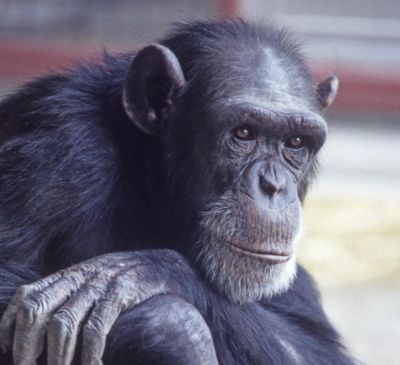‘I think this is a huge victory’: Ruling in Argentina opens door to granting apes personhood

Primate communication scientist Mary Lee Jensvold says she faces a fundamental problem in her work to care for chimpanzees: They have no more rights than the chair she sits on.
The problem existed in Ellensburg, which is home both to Central Washington University’s Chimpanzee and Human Communication Institute and to Friends of Washoe, a nonprofit where Jensvold studied primates and worked to improve captive conditions for apes.
And the problem exists in Quebec, where Jensvold now serves as associate director of Fauna Foundation, a chimpanzee sanctuary.
But a legal decision in Argentina granting an orangutan named Sandra personhood, plus ongoing litigation in the United States, has given Jensvold hope that the rights of chimps and other nonhuman primates could improve.
Though her status is merely symbolic in Sandra’s new home at Florida’s Center for Great Apes, Jensvold hopes the legal decision in Argentina might push the United States closer toward recognizing nonhuman personhood.
“I think this is a huge victory,” Jensvold said. “It’s really about legal status for apes. … When you grant personhood, that gives them some rights and that means you have to treat them differently.”
Jensvold is hopeful about the work being accomplished. And she’s not alone.
“Right now the line between human beings and nonhuman animals is at an irrational place,” said Steven Wise, one of the foremost animal personhood advocates, in the HBO documentary “Unlocking the Cage.” “It’s ‘Are you a human? You have rights. You’re not a human, you don’t.’ We’re saying that’s wrong.”
Wise realized that, to accomplish his mission, he would need to prove to New York courts that the primates were individuals not only aware of their own consciousness but also of others. To that end, Wise visited Fauna with a documentary crew to observe the chimpanzees.
“When people see the chimps signing, they see nonhumans in a completely different light because they’re like wait a minute, they just said something,” Jensvold said in “Unlocking the Cage.”
One of the chimps, Tatu, loves cheese but has to limit herself because she’s lactose intolerant. She loves the color black, and she can tell when holidays are coming up. Halloween is her favorite because she loves masks.
When Washoe – the surrogate mother of Tatu and another chimp called Loulis – died in 2007, Loulis grieved for months, Jensvold said.
“It’s really important to understand that they are individuals with personalities,” Jensvold said. “They have, just like humans, things that they want to do. They have desires. They can experience emotions: happiness, sadness, despair, joy. Tatu and Loulis, because they sign, can tell us what it’s like to be a chimp.”
Jensvold said the death of Washoe was bittersweet for her.
“It’s very sad when you think about what they’ve lost in their life. So in the moment of death, it’s very bittersweet because they’re finally free of that,” Jensvold said. “You get a very mixed emotion, and in some ways it’s a sense of relief, because now they’re not suffering incarceration anymore.”
As part of a research project at University of Nevada, Tatu was raised like a human child up until age five. She sat in a highchair and was taught to use utensils, learned to use the toilet and learned American Sign Language.
After the research project concluded, she moved to CHCI and Washoe took her on as a surrogate daughter. Now she’s 44, and Louilis is 41, geriatric for chimpanzees who typically have a lifespan of 35 years.
The litigation strategy used in the Argentinian case was originally tested by Wise’s team.
In December 2013, the Nonhuman Rights Project filed a petition for a common law writ of habeas corpus on behalf of a chimpanzee named Tommy.
The focus wasn’t on cruel treatment of the animals per se, but on the idea that the animals should have liberties that protect them from unlawful imprisonment – that is, captivity.
“When we punish people, we punish them by taking away their autonomy,” Wise said in the documentary. “That’s really what putting you in prison is – it’s stripping you of your autonomy in every way, and that’s a terrible, terrible punishment for you.”
The organization took a common law habeas corpus approach in the U.S. because, “we thought those courts would be most likely to consider the injustice of our clients’ situations in those terms and use habeas corpus as the legal remedy for it,” said Lauren Choplin, Nonhuman Rights Project communications director. “The goal there would be that they would recognize our clients as legal persons with one single right, which is the right to liberty protected by habeas corpus.”
Though the Nonhuman Rights Project hasn’t won a case and apes haven’t been granted personhood in the U.S., Choplin said the organization is optimistic that could change, noting a sympathetic opinion from a New York judge who sided against them in Tommy’s case.
“In the interval since we first denied leave to the Nonhuman Rights Project, I have struggled with whether this was the right decision,” New York Court of Appeals Judge Eugene M. Fahey wrote in his opinion.
“The issue whether a nonhuman animal has a fundamental right to liberty protected by the writ of habeas corpus is profound and far-reaching,” Fahey continued. “It speaks to our relationship with all the life around us. Ultimately, we will not be able to ignore it. While it may be arguable that a chimpanzee is not a ‘person,’ there is no doubt that it is not merely a thing.”